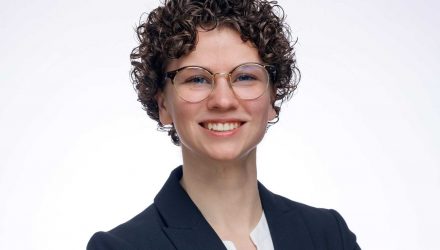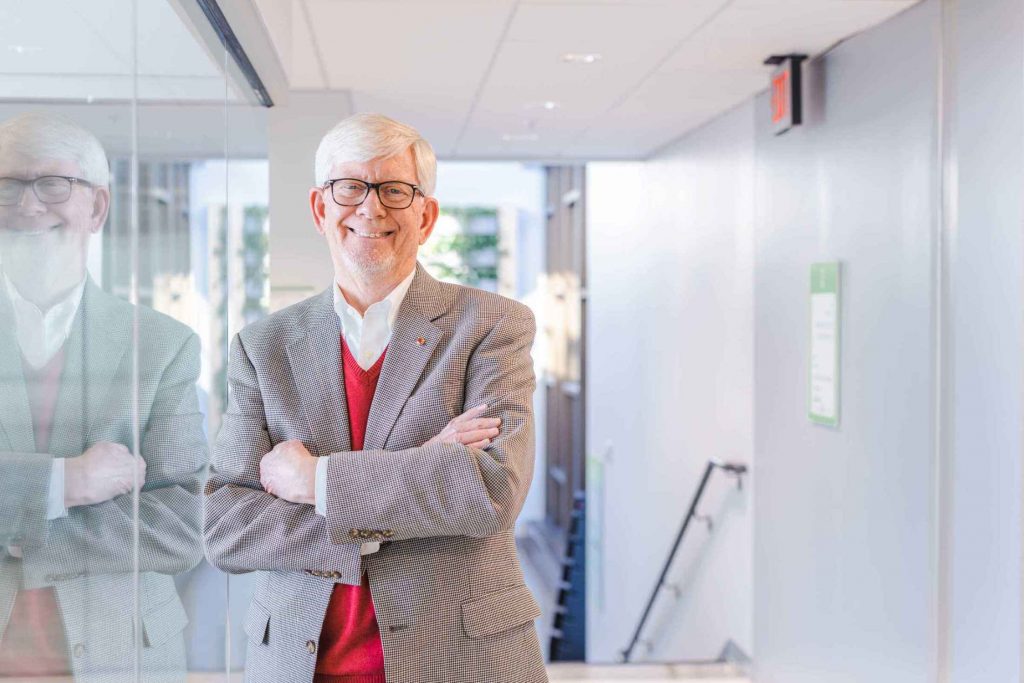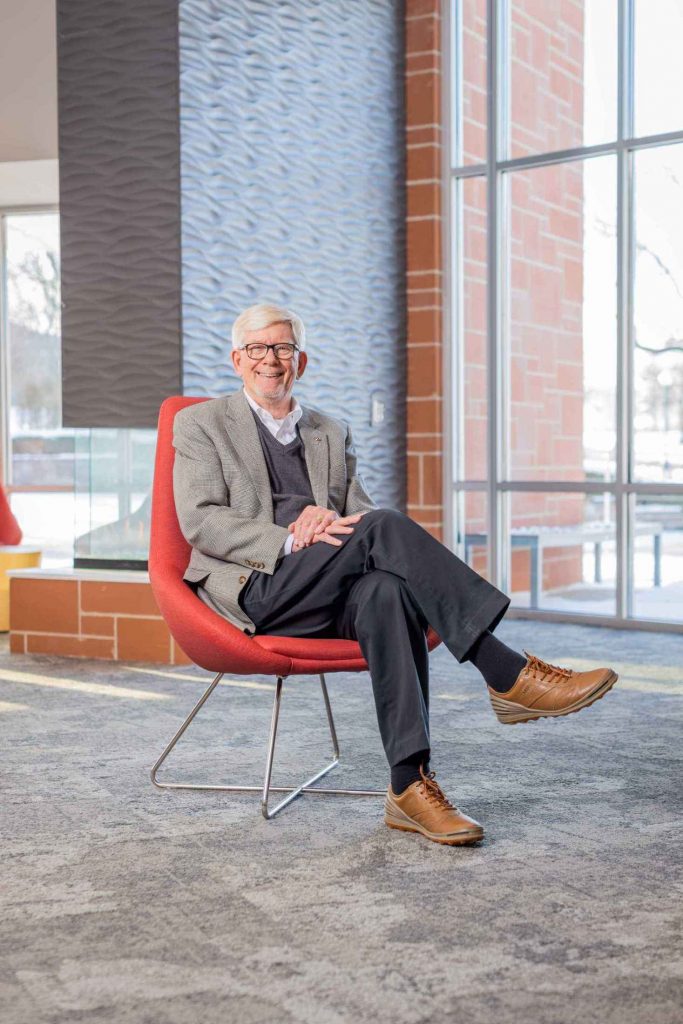
Q + A with Interim President Dr. John Teevan

Dr. John A. Teevan (MDiv 72, DMin 07) landed at Grace Theological Seminary (GTS) after accepting Christ in a most peculiar way on the campus of Princeton University. He didn’t come to Grace to become a pastor (although he did). He came with a desire to better know God and His Word. Now, after nearly five decades, two Charis Fellowship pastorates and twelve years directing Grace’s prison program, he’s serving as Grace’s Interim President. If you don’t know Teevan, you should. We sat down with him to learn more about the journey that has prepared him for such a time as this.
Anyone who has met you knows that you have a love for learning. Are you able to identify when your hunger for knowledge originated?
It certainly started with discussions that happened at the dining room table growing up. My dad was an attorney and taught business law at Northwestern University in Chicago, his father also taught at Northwestern and my mom’s father was the Dean of Liberal Arts there. So there was a culture of learning and asking questions and being curious in my home. That’s where I picked up “the liberal arts gene” which is all about the desire to understand things and find where they fit. And I’ve never lost it.
Clearly that hunger for learning did you well in the college search. How did you end up studying economics at Princeton University?
My dad told me, “If you get accepted into a school far away, it’s best to, just get out of town.” And so when I got into Princeton, I followed my dad’s advice and took the opportunity to learn in a different subculture. I enjoyed the different places and different people.
What memories most stand out to you about your time studying at Princeton?
I will never forget the “Physics for Poets” class I took with Professor Rogers. Two things struck me about him. First, he had been Albert Einstein’s next-door neighbor. And second, I will never forget the words he shared with me after I was unable to get an experiment to pan out as it was supposed to. He said, “You’re either going to have to change your facts or change your theory.” Believe it or not, a year and a half later, that comment was influential in my becoming a Christian because the facts of my life and my theory did not align.
What were the events that led up to your decision to follow Christ?
My story of coming to faith is all very backward and not normative. I was in a church on the Princeton campus. A guy got up and said, “We all know that Jesus Christ is the Son of God born of a virgin. He lived a perfect life, taught a lot of people, healed, did miracles, died on the cross to pay for our sins, rose from the dead, lives in heaven and will be coming back.” He went on to say, “Now, up until the Enlightenment, we believed that nonsense. But ever since then, we don’t.”
Unknowingly and unwillingly, that man preached the gospel to me and it was the first time I had ever heard it. My response was, “That’s great, but I’m not a sinner.” So I started running away from God. Over the next year, I took a philosophy course that I thought was nonsense. And then I took a religion course which I thought was more nonsense. (I guess I was a contrarian!) But slowly, I began to see that sin was not just committing a crime. It was a way of ignoring God – and I was certainly doing that. I also saw that my life was not working.
So, my sophomore year, while living alone in Lockhart Hall, I received a Time magazine in the mail. The cover, which was very famous, read “Is God Dead?” I read the article and thought, these people are crazy. And within the next ten days, I stopped running away from God and became a Christian. Between the words of my physics professor, the atheist speaker and the Time magazine article – none of which aimed at pushing a Christian agenda – I came to Christ.
It’s not every day that a Princeton economics student ends up at Grace. How did you end up at GTS?
After receiving Christ, I got involved with the Princeton Evangelical Fellowship which was a group that would gather for Bible studies. There was a strong Princeton connection with Grace Theological Seminary at the time, and of that group, two or three dozen people went on to attend Grace. I had never heard of Grace or the Charis Fellowship, but it was one of three seminaries recommended, and it was the closest one to Chicago. I didn’t enroll in seminary with any intention of becoming a pastor. I was there simply to learn more about the Bible.
What is your favorite memory from your student days at GTS?
Two things. One of them was singing in the Ashman Chapel. There were probably about 90 students just in my class, and we would all pack in the chapel and worship together. Our voices would fill the room and it was moving. I will never forget that. The other memory that comes to mind was just down the hall in McClain. I was in a theology class surrounded by guys who were falling asleep because they had wives, children and full-time jobs. As a rookie Christian and single young man, I was fully engaged thinking, ‘I’m getting the good stuff here.” I just loved it.

Contrary to your original intentions, your seminary training led you to two pastorates within the Charis Fellowship spanning 36 years. What is the most important lesson you learned as a pastor?
I remember walking into Knute Larson’s (BA 62, BDiv 66) office one day as a young pastor in Ashland, Ohio, and saying, “People never change.” When I left eighteen and a half years later before taking a position at Winona Lake Grace Brethren, I was amazed (and I am still amazed today) at the amount of spiritual change I saw in people, including me, over those years. My word of advice to pastors is if you think you’re doing this and you’re going to get a one-to-one outcome, you may well be delusional. But if you think you’re wasting your time, you’re also delusional. Just keep at it.
What do you appreciate most about the Charis Fellowship?
It is my other family. That’s it. Everybody has a family, and hopefully, you like your family. I do. Everybody has a family, and hopefully, you’re proud of your family. I am. I just finished forty years on Encompass World Partners mission board; I also served as a moderator for a while and have been on many committees. The fellowship is my family and it’s a joy working alongside my brothers and sisters.
You served for twelve years as the Director of the Prison Program at Grace, and it’s clearly a passion point for you. How did you transition from church ministry to the prison program?
After being a pastor for 36 years, you don’t necessarily expect that your life is going to change and a whole new vista is going to open and you’re going to see and learn new things. Usually, at that point, you think you’re coasting or on a bit of decline. But after opening up a transitional period at the church, I felt like I was jumping off a cliff into a fog bank and hoping there was water at the bottom. The ‘water’ ended up coming in the form of a phone call from Dr. Steve Grill (BA 70) asking if I would be interested in leading Grace’s Prison Extension program. At first, I told him I’d think about it. But immediately after hanging up, I realized that was just the call from God I had been waiting for, so I called him right back and said “You bet!”
What did you learn during your time serving in that capacity?
I learned a lot. When I took the position, I didn’t know anything about prison. I had all the same ideas and stereotypes everybody else has. But as I got involved, I didn’t just learn about prison higher education policy and practice. I learned about life. I remember there was a guy, Mark, who was so sharp. I had to step back and ask myself, “Is this guy actually wearing khaki?” And he was. I thought, “He could run this thing. He doesn’t need us.” Mark had been in prison for more than 50 years.
He taught me that life on the inside isn’t all that different from life on the outside. When you go to prison, you have to make a turn. The first step is realizing where you’re at. You have to accept the fact that you’re behind bars, you’re wearing khaki clothes and eating this food. The second step: quit fighting. About half of all people at a maximum-security prison keep fighting. If they follow steps one and two, it’s like a miracle. Then, step three: make the turn. For many that is trusting Jesus. Step four: figure out what your opportunities are. And step five: pursue the best one (which for them, we knew was education).
Mark helped me realize that it’s really pretty similar on the outside. We’re not getting off the planet alive. We have to accept where we are, stop fighting, make our turn by accepting Christ, assess our opportunities, and pursue the best one. Mark helped me see a real narrative about what all life is about. But I could only see it clearly from a prisoner who has the courage to make and sustain those decisions in such an extreme situation.
After the prison program, you continued to teach courses for the seminary. It’s evident Grace has been a prominent piece in your journey, but how has it been significant in your family’s journey as well?
I met my wife, Jane (Cooper BA 71) Teevan, while I was at Grace Seminary. I actually left for a short stint, and she was the reason I came back. We got married after she graduated in 1971. And then our son John O. (BA 97) who lives in Ashland, Ohio attended Grace and met his wife Christina (Fox BS 98) Teevan at Grace. Our son Matt, who lives in Winona Lake also married a Grace graduate, Polly (Cary BS 01) Teevan. Our third son, Adam, and his wife April work in Redmond, Washington.
Now, even to your own surprise, you are serving as Grace’s interim president. What have been a few of your goals for your six months in this role?
I see myself as a bridge to the future. I see myself as a people-focused ambassador. And for a third analogy, I see it as my job to pass the baton to the new president so that he or she looks back and says, “He did what he could. That was helpful.”
One of the things you’ll be remembered for on campus is your fun initiative, “Tuesdays with Teevan.” What this is all about?
Tuesdays with Teevan are weekly emails that go out to students, faculty and staff that include thought-provoking quotes and maps that grab your attention or even tell a story. My goal is that the emails connect with students and engage their curiosity. I think using curiosity to help solve problems is part of what colleges are all about.
What are your top three passions?
- Curious Thinking. I just can’t stop it. To me, that’s the “liberal arts gene.” I didn’t go to college to learn facts or ideas, but to learn how to think. Since I have the liberal arts gene, I love being around people who know so much more than I do. I cannot turn it off.
- Gardening. I am the flower gardener at our house and I enjoy that very much.
- Traveling. I have thoroughly enjoyed traveling over my life beginning with childhood trips to all four corners of the U.S. In my adult years, I’ve taken international trips with each of my sons: one to Japan, one to central Europe and one to Israel. I’ve also been to many places with Jane.
We are thankful for Dr. Teevan’s Christ-like servant leadership during this time. Learn more about our leadership.
Previous Post

